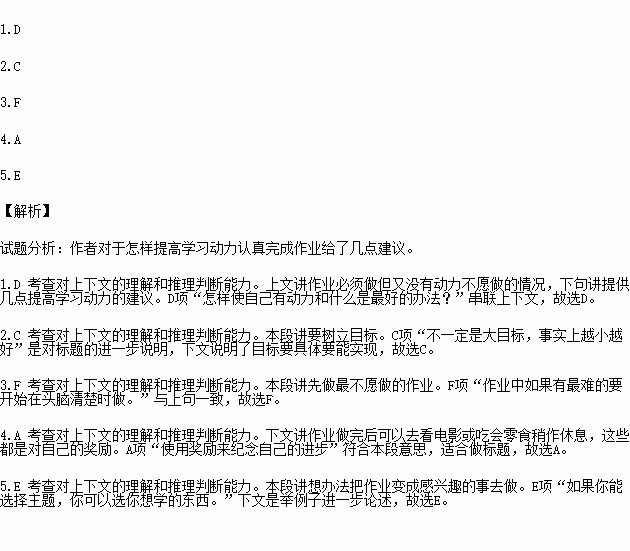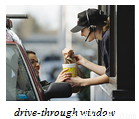题目内容
根据短文内容,从短文后的选项中选出能填入空白处的最佳选项。选项中有两项为多余选项。将答案写在答题纸上。
Tips on Homework
What do you do when you just can’t get yourself to do homework? You know it has to be done. However, it is the last thing on which you want to spend your time. 1. Here are some tips to improve your motivation to study.
Set goals for yourself. 2. Start by setting goals you know you can achieve easily. For instance, a goal such as getting straight A’s on your next report card would be nice, but it is a major goal. An easier one would be taking a page of notes for your report.
Set a schedule for studying and write it down. Why write it down? Something about the written words makes it harder to ignore. Once you’ve written it down, you’ll do it.
Do the homework you dislike the most first. 3. However, if you have a number of small assignments and one major assignment to work on, doing the small ones first will make it seem like you are making progress more quickly.
4. You could “allow” yourself to go to a movie on Friday night if you get your History project completed by then, or you could take a snack break once you get the first thirty Maths questions completed.
Find a way to turn your homework assignments into something that interests you. 5. I you have to do geometry homework, think about how you could use it when you want to become a building designer. If you are researching Russia and your interest is in wildlife, find out what species you would find there.
A. Use rewards to mark your progress.
B. Do physical exercises during study breaks.
C. They don’t have to be big ones, in fact, the smaller the better.
D. How are you going to get yourself motivated and what is the best way?
E. If you have a choice of topics, choose something you’ve always wanted to learn about.
F. Also, if there is homework you find most difficult, do it first while your mind is still fresh.
G. If your friends ask you to hang out when you have homework to do, stay home and do the work.


